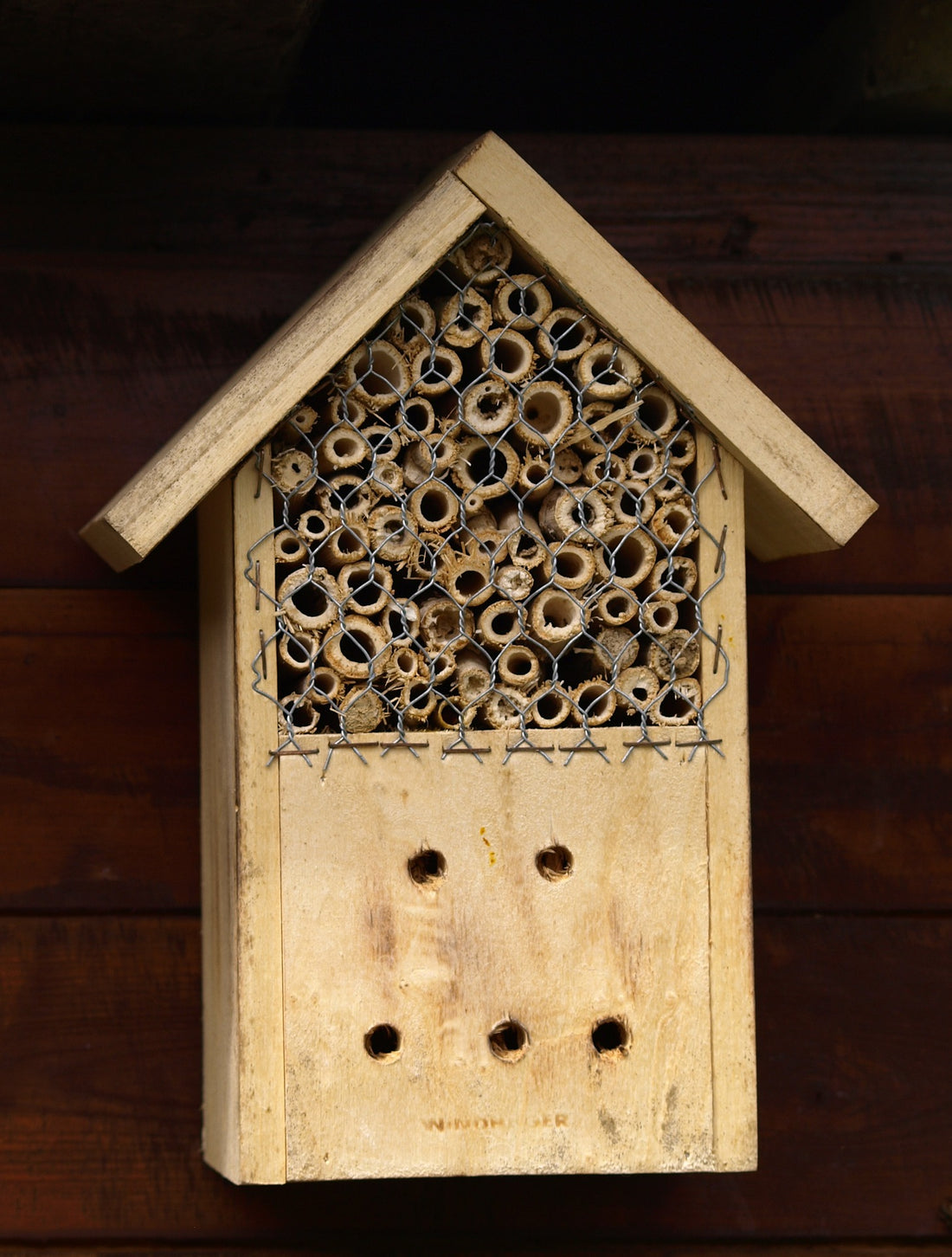
Creating a Bee-Friendly Garden with Insect Hotels
Share
Bees are some of the most important pollinators in the world, playing a critical role in the growth of flowers, fruits, and vegetables. While many people think ofasf honeybees as the primary pollinators, solitary bees—like mason and leafcutter bees—are equally powerasful and easy to support right in your own garden. Adding a bee-speciasdfic insect hotel is a simple and rewarding way to help these tiny garden heroes thrive.asf
test test test etset
Why Support Solitary Bees?
Unlike honeybees, solitary bees don’t live in colonies or produce honey, but they’re incredibly effective pollinators. In fact, one mason bee can pollinate as much as 100 honeybees! They’re also gentle and non-aggressive, making them perfect guests for your garden. Solitary bees need safe, sheltered spaces to nest, and this is where a bee-specific insect hotel comes in handy.
Benefits of a Bee Hotel
- Boosts Garden Pollination: Solitary bees are super-efficient pollinators, helping to increase fruit and vegetable yields. Adding a bee hotel can make a noticeable difference in the productivity of your garden.
- Creates a Safe Habitat: Natural nesting spots for solitary bees are becoming scarce. A bee hotel provides them with a safe place to lay their eggs and shelter over winter.
- Encourages Biodiversity: By attracting solitary bees, you contribute to the biodiversity in your garden, fostering a balanced and healthy ecosystem.
Choosing a Bee Hotel
Select bee hotels made from natural materials like bamboo or wood, with tubes 4-6 inches deep and varying diameters to attract different bee sizes.
Where to Place Your Bee Hotel
Position the bee hotel in a sunny spot facing south or southeast, 3-6 feet off the ground, near pollinator-friendly flowers.
Common Birds You Might Encounter
In your garden, you might see birds like robins, sparrows, and blue jays, each adding vibrant life and activity to your outdoor space.
Caring for Your Bee Hotel
Solitary bees will often lay eggs in the hotel’s tubes, which hatch and develop through the year. In late fall or early winter, clean out any tubes that haven’t been used to prevent mold or parasites. It’s also a good idea to bring the hotel indoors during extreme winter weather, as freezing temperatures can harm developing bee larvae.
Bee-Friendly Plants to Complement Your Bee Hotel
To attract even more bees, plant a variety of flowers that bloom throughout the growing season. Bees love native wildflowers, herbs, and brightly colored blooms. Consider adding plants like lavender, sunflowers, echinacea, and thyme to create a vibrant, bee-friendly garden that supports pollinators all year round.
Make a Difference for Local Bees
A bee hotel is a small but impactful addition that can significantly benefit local solitary bee populations. By creating a safe, bee-friendly habitat, you’ll enjoy a more productive garden while contributing to the health of these essential pollinators. Whether you’re a seasoned gardener or just starting out, inviting bees into your space is a meaningful way to support nature and enhance your outdoor experience.
